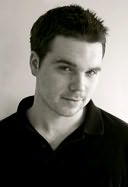- Shopping Bag ( 0 items )
From Barnes & Noble
Barnes & Noble Discover Great New WritersIt's midnight in Lynchburg, Virginia, and Roose is kneeling on his dorm room floor. No, he's not reeling from too much beer. He's praying. And at Liberty University, such behavior is fairly uneventful. The world's largest evangelical college, with a 10,000-strong study body, Liberty is a training ground for the conservative Christian right, which until his death, was lorded over by the Reverend Jerry Falwell. So what happens when a fairly typical student from an Ivy League university tries a semester at Bible boot camp?
His Bible in hand, Roose embarked on a new life slated to last just one semester, with no pot smoking, no binge drinking, and no sex. He hewed to a rigorous new path of Bible study, choir practice, and prayer groups. But a month into his Southern sojourn, he discovers the worrisome part: he's feeling his own beliefs shift. Is it a great awakening? Maybe, maybe not.
A fresh, candid look at what goes on behind the closed doors of our nation's Christian colleges, The Unlikely Disciple is a revelation: a completely balanced memoir that shows us, with the aid of Roose's keen eye and generous spirit, that faith is a lot more complicated than it seems. (Summer 2009 Selection)





Overview
No drinking.
No smoking.
No cursing.
No dancing.
No R-rated movies.
Kevin Roose wasn't used to rules like these. As a sophomore at Brown University, he spent his days drinking fair-trade coffee, singing in an a cappella group, and fitting right in with Brown's ...